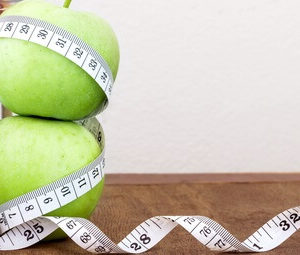Vitamin C: What is it Good For? (It’s Not What You Think)
Does Vitamin C Possesses any Preventative Benefit to Colds?
Coming down with a cold? Take some vitamin C and you’ll feel much better! If you grew up in North America, you are likely familiar with this advice. As a child, your mom might have forced you to choke down liters of Neocitron and cough lozenges fortified with vitamin C, and perhaps, as an adult, you now do the same with your children.
Well, for many years now, scientific studies and research have been challenging the belief that Vitamin C possesses any kind of preventative benefit when it comes to colds (sorry, Mom).
But, hang on! Before you go and throw out all your oranges (which would be really wasteful, so, please don’t do that), vitamin C possesses a ton of other benefits outside of cold-curing which may surprise you.
What is Vitamin C and Where Can We Get It?
First, what is vitamin C and where can we get it? Vitamin C, also known as ascorbic acid, is a water-soluble nutrient essential for normal growth and life; because we can’t produce it in our bodies (unlike a lot of animals!), we need to absorb it through the food we eat. When most people think of C, they think of oranges, lemons, and other citrus fruits. Actually, strawberries, kale, broccoli, Brussel sprouts, cauliflower, kiwi, cup for cup, contain more vitamin C than an orange.
Vitamin C may not cure your cold, but it is responsible for lots of other important functions of which you may not be aware: it helps to make collagen, which is responsible for keeping your skin supple and youthful-looking, and your joints mobile and pain-free; vitamin C has also been shown to speed up wound-healing.
Vitamin C helps in your body’s absorption of iron; multiple studies have persuasively demonstrated a link between different osteopathic conditions, such as osteoporosis and osteoarthritis, and chronic vitamin C deficiency. Similarly, it has been pretty much accepted as fact by the medical community (and the rest of the world in general) that a diet high in fruits and vegetables (of which C is a main component) is associated with lower risks of cardiovascular disease, stroke, and cancer. And you’ve probably heard of scurvy; this pleasant condition occurs from a deficiency in Vitamin C and involves bleeding gums and cracked skin (collagen deficiency at work), falling-out teeth, and joint soreness and pain. You are likely not at risk for developing scurvy (unless you are a pirate living in the 1600’s), but while I was in university, a friend of mine was diagnosed with scurvy; allegedly, in an attempt to save money for alcohol, he had been subsisting solely on Mr. Noodles.
Another surprising benefit that it has been shown to possess is in post-exercise recovery; one study showed improvements in muscle soreness, muscle function, and plasma concentrations of malondialdehyde, an acid that occurs organically in the body and is a biomarker of oxidative stress. Another study found that with ultra-marathon runners, risk of post-race upper-respiratory tract infection symptoms (apparently, very common with endurance athletes) was significantly reduced with vitamin C supplementation.
Another surprising benefit that vitamin C has demonstrated is the improvement of glucose and lipid metabolism in individuals with type II diabetes.
How Much Do You Need?
So, how much should you be getting daily? Truthfully, it isn’t hard to attain the necessary C in our day-to-day lives (unless you are eating only Mr. Noodles and vodka). By and large, experts recommend that you get all of your vitamin C from your diet: bell peppers, broccoli, leafy greens, tomatoes, citrus fruits—all of these are excellent sources of vitamin C–even potatoes contain vitamin C. If you’re getting all of your vitamin C through supplements, you’re missing out on some pretty essential cofactors. And you probably need less than you think: most experts recommend about 75-90 mg of vitamin C for the average healthy adult. To put this in perspective, just one yellow bell pepper contains over 300% of your daily vitamin C intake (a yellow pepper contains about 340 mg of vitamin C)! So, honestly, you probably don’t need that vitamin C supplement; one possible exception to this rule is smokers, as studies have shown that people who smoke are more likely to suffer from a vitamin deficiency. One study even found that vitamin C supplementation helped to improve smokers’ notoriously-subpar sperm quality.
And on that note: every individual has different optimal requirements. If you’re interested in learning more about the nutritional content of different foods, and its functioning in your body and its effect on your health and performance, why not take a course designed specifically for that purpose? You can check out Infofit’s nutritional course offerings here!
Wishing you all the best on your journey to optimum health!
Written by Theresa Faulder, Master’s in English, ACE-Certified Personal Trainer, and Infofit fitness blog writer.
Works cited
Chalmers, T. C. (1975). Effects of ascorbic acid on the common cold. The American Journal of Medicine, 58(4), 532-536. doi:10.1016/0002-9343(75)90127-8
Henderson, H., & Mcewen, T. (1972). Effect of ascorbic acid on thioglucosidases from different crucifers. Phytochemistry, 11(11), 3127-3133. doi:10.1016/s0031-9422(00)86361-x
Kallner, A. B., Hartmann, D., & Hornig, D. H. (1981). On the requirements of ascorbic acid in man: steady-state turnover and body pool in smokers. The American Journal of Clinical Nutrition, 34(7), 1347-1355. doi:10.1093/ajcn/34.7.1347
Kallner, A. B., Hartmann, D., & Hornig, D. H. (1981). On the requirements of ascorbic acid in man: steady-state turnover and body pool in smokers. The American Journal of Clinical Nutrition, 34(7), 1347-1355. doi:10.1093/ajcn/34.7.1347
Maggio, D., Barabani, M., Pierandrei, M., Polidori, M. C., Catani, M., Mecocci, P., . . . Cherubini, A. (2003). Marked Decrease in Plasma Antioxidants in Aged Osteoporotic



